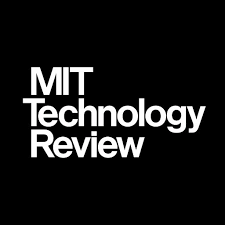
Informed i’s Weekly Business Insights
Extractive summaries and key takeaways from the articles carefully curated from TOP TEN BUSINESS MAGAZINES to promote informed business decision-making | Since 2017 | Week 379 | December 13-19, 2024 | Archive

How Silicon Valley is disrupting democracy
By Bryan Gardiner | MIT Technology Review | December 13, 2024
3 key takeaways from the article
- In 2013, the columnist Adrian Wooldridge warned of the coming “techlash,” a revolt against Silicon Valley’s rich and powerful fueled by the public’s growing realization that these “sovereigns of cyberspace” weren’t the benevolent bright-future bringers they claimed to be. While Wooldridge didn’t say precisely when this techlash would arrive, it’s clear today that a dramatic shift in public opinion toward Big Tech and its leaders did in fact happen—and is arguably still happening.
- Two of the more recent additions to the flourishing techlash genre—Rob Lalka’s The Venture Alchemists: How Big Tech Turned Profits into Power and Marietje Schaake’s The Tech Coup: How to Save Democracy from Silicon Valley—serve as excellent reminders of why it started in the first place. Together, the books chronicle the rise of an industry that is increasingly using its unprecedented wealth and power to undermine democracy, and they outline what we can do to start taking some of that power back.
- The technologies of the future must be pursued thoughtfully, ethically, and cautiously. And regulating Big Tech will be a crucial part in this pursuit.
(Copyright lies with the publisher)
Topics: Technology and humans, Regulating technology, Big Tech Five
Click for the extractive summary of the articleExtractive Summary of the Article | Read | Listen
The internet loves a good neologism, especially if it can capture a purported vibe shift or explain a new trend. In 2013, the columnist Adrian Wooldridge coined a word that eventually did both. Writing for the Economist, he warned of the coming “techlash,” a revolt against Silicon Valley’s rich and powerful fueled by the public’s growing realization that these “sovereigns of cyberspace” weren’t the benevolent bright-future bringers they claimed to be.
While Wooldridge didn’t say precisely when this techlash would arrive, it’s clear today that a dramatic shift in public opinion toward Big Tech and its leaders did in fact happen—and is arguably still happening. Say what you will about the legions of Elon Musk acolytes on X, but if an industry and its executives can bring together the likes of Elizabeth Warren and Lindsey Graham in shared condemnation, it’s definitely not winning many popularity contests.
To be clear, there have always been critics of Silicon Valley’s very real excesses and abuses. But for the better part of the last two decades, many of those voices of dissent were either written off as hopeless Luddites and haters of progress or drowned out by a louder and far more numerous group of techno-optimists. Today, those same critics (along with many new ones) have entered the fray once more, rearmed with popular Substacks, media columns, and—increasingly—book deals.
Two of the more recent additions to the flourishing techlash genre—Rob Lalka’s The Venture Alchemists: How Big Tech Turned Profits into Power and Marietje Schaake’s The Tech Coup: How to Save Democracy from Silicon Valley—serve as excellent reminders of why it started in the first place. Together, the books chronicle the rise of an industry that is increasingly using its unprecedented wealth and power to undermine democracy, and they outline what we can do to start taking some of that power back.
Regulating Big Tech will be a crucial part of leveling the playing field and ensuring that the basic duties of a democracy can be fulfilled. But as both Lalka and Schaake suggest, another battle may prove even more difficult and contentious. This one involves undoing the flawed logic and cynical, self-serving philosophies that have led us to the point where we are now.
What if we admitted that constant bacchanals of disruption are in fact not all that good for our planet or our brains? What if, instead of “creative destruction,” we started fetishizing stability, and in lieu of putting “dents in the universe,” we refocused our efforts on fixing what’s already broken? What if—and hear me out—we admitted that technology might not be the solution to every problem we face as a society, and that while innovation and technological change can undoubtedly yield societal benefits, they don’t have to be the only measures of economic success and quality of life?
When ideas like these start to sound less like radical concepts and more like common sense, we’ll know the techlash has finally achieved something truly revolutionary.
show less
Leave a Reply
You must be logged in to post a comment.